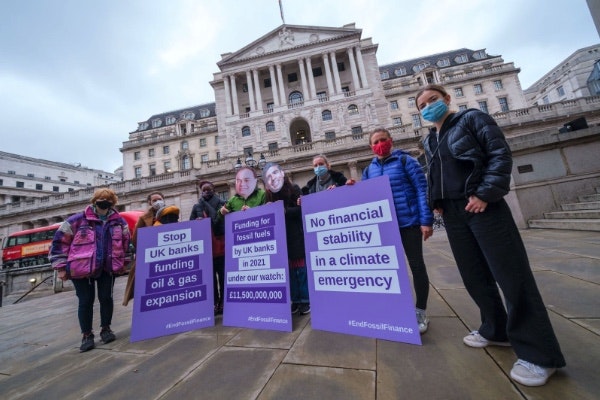Open letter to Chancellor: time to support alternatives to quantitative easing

London, Wednesday 3rd August
Leading economists to Chancellor: time to support alternatives to quantitative easing
35 leading economists are today writing to Philip Hammond asking that he supports a new form of monetary policy. Responding to concerns expressed by the Prime Minister that low rates and quantitative easing have disproportionately benefited the wealthy, the letter argues that new monetary policy tools could stimulate the economy without contributing to inequality.
This intervention comes on the day that the Bank of England looks set to vote to cut interest rates and possibly restart its quantitative easing programme. Governor, Mark Carney, has promised that the Bank will do “whatever it takes” to support growth in the aftermath of the UK’s vote to leave the EU.
The letter calls on the Chancellor to investigate alternative ways of transmitting central bank money directly into the real economy, such as via a citizens’ dividend, housebuilding programme or investment in infrastructure.
The letter argues that more QE is likely to be ineffective because it relies on an already highly leveraged household sector to borrow even more. The economists “urge the new government to consider alternative policy approaches which will directly increase spending and investment in the real economy without burdening households with yet more debt.”
Fran Boait, director of Positive Money, the campaign group which coordinated the letter, said: ”Theresa May recognises that low rates and QE have contributed to inequality, but the Bank of England is expected to double-down on the same failed policies. If the new Government is serious about building an economy that works for everyone, it should start by giving the Bank of England new tools to simulate the economy without the toxic side-effects”.
Notes to editors
The letter will be available to view from noon tomorrow at bsd.wpenginepowered.com/lettertochancellor.
The letter was coordinated by Positive Money. Executive Director Fran Boait is available for interview as are several of the letter’s signatories. Please contact David Clarke at david.clarke@bsd.wpenginepowered.com.uk or 02072533235 for more details.
Positive Money is a research and advocacy organisation which champions reform of the UK’s money and credit system so that it better serves society and the wider economy. We are a not-for-profit company funded by small donors, charitable trusts and foundations.
The full list of signatories is as follows:
Andrew Watt, Macroeconomic Policy Institute, Hans-Böckler-Foundation
Avner Offer, University of Oxford
Biagio Bossone, Chairman of the Group of Lecce
Christian Marazzi, University of Applied Sciences and Arts of Southern Switzerland
Constantin Gurdgiev, Trinity College Dublin
David Boyle, Radix
David Graeber, London School of Economics
Ellen Brown, Pubic Banking Institute
Eric Lonergan, economist & writer
Fran Boait, Positive Money
Fulvio Corsi, City University of London
Guy Standing, School of Oriental and African Studies, University of London
Helge Peukert, University of Erfurt
Herman Daly, University of Maryland
Iqbal Asaria, CASS Business School
Jem Bendell, University of Cumbria
John Weeks, School of Oriental and African Studies, University of London
Joseph Huber, Martin Luther University of Halle-Wittenberg
Josh Ryan-Collins, New Economcs Foundation
Kaoru Yumaguchi, Doshisha Business School
Kees van der Pijl, University of Sussex
Ladislau Dowbor, Pontifical Catholic University
Laurence, Seidman, University of Delaware
Luca Ciarrocca, macroeconomic author
Livio Di Matteo, Lakehead University
Mark Blyth, Brown University
Mary Mellor, University of Northumbria
Matthias Kroll, World Futures Council
Nigel Dodd, London School of Economics
Ole Bjerg, Copenhagen Business School
Philip Haynes, University of Brighton
Lord Robert Skidelsky, Warwick University
Steve Keen, Kingston University
Thomas Fazi, Social Europe
Tim Jackson, University of Surrey
Victoria Chick, University College London
David Clarke
Policy and Advocacy Adviser, Positive Money
0207 253 3235
david.clarke@bsd.wpenginepowered.com
212 Davina House, 137-149 Goswell Road, London, EC1V 7ET